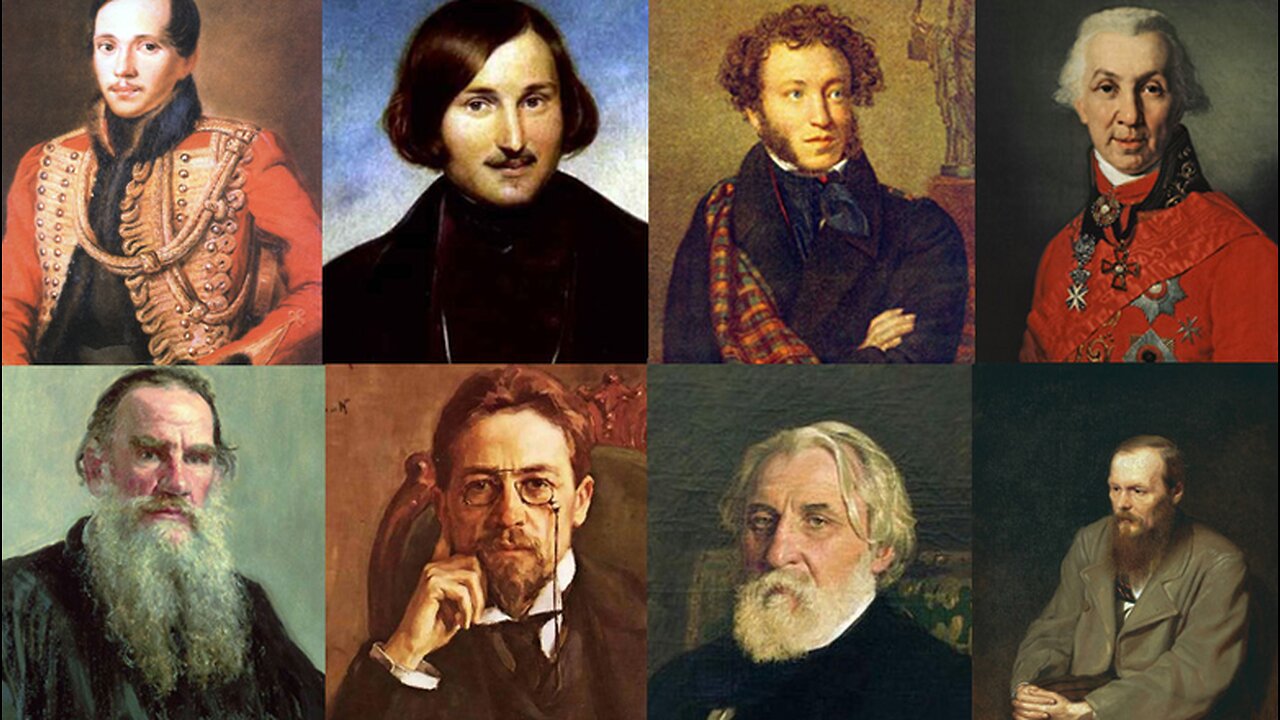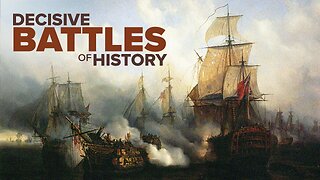Premium Only Content

Classics of Russian Literature | St. Petersburg Glorified and Death Embraced (Lecture 7)
Lecture 7: Pushkin was well aware that Russian greatness and power were built on the suffering and labor of tens of millions of serfs and lower-class, urban serving people. In his narrative poem The Bronze Horseman, he contrasts the most famous invocation to the beauty of St. Petersburg—known as well by Russians as we know Hamlet’s “To be or not to be”—with the misery of those who live and perish under the yoke of Russia’s imperial establishment. Later, not long before his death, he erects his own monument, “not touchable by human hands,” to be admired by countless future Russian generations. In 1837, Pushkin, who felt he had to live in Russian high society, perished from a blow brought about by the Byzantine turnings of that same society. A French officer serving in the Russian army, Georges d’Anthès, virtually stalked Pushkin’s beautiful wife, Natalia. Pushkin’s enraged reactions, and a nasty anonymous letter, led to a duel that ended with a bullet in the poet’s abdomen and a hideously painful deatha death that Russia mourns to this very day.
Suggested Reading:
John Bayley, Pushkin: A Comparative Commentary.
Ilya Kutik, Writing as ExorcismThe Personal Codes of Pushkin, Lermontov, and Gogol.
Aleksandr Pushkin, The Bronze Horseman in Pushkin Threefold, poems translated by Walter Arndt.
-
 30:05
30:05
The Great Courses
2 months agoDecisive Battles of World History | 1942 Stalingrad - Hitler's Ambitions Crushed (Lecture 35)
183 -
 14:56
14:56
Scammer Payback
23 hours agoRaided Scam Call Center Returns (Video Proof)
76.6K26 -
 15:24
15:24
BlackDiamondGunsandGear
1 month agoNEW Best Budget Duty pistol? / Tisas PX-9 Duty Comp
9.22K4 -
 LIVE
LIVE
Boxin
3 hours agoGrounded! part 2
84 watching -
 25:38
25:38
TheRoyaltyAutoService
15 hours ago $3.25 earnedThis 2020 Nissan Murano Was In The Shop For Months & Gave Him Nightmares…
15.4K2 -
 9:57
9:57
Red Pill MMA
21 hours agoIrish Media Corruption & Lies EXPOSED
9.05K14 -
 31:05
31:05
ArturRehi
1 day agoKarma Arrives in Russia - Explosions, Fear and Panic | Ukraine Update
13.6K32 -
 12:57
12:57
Tactical Considerations
18 hours ago $0.84 earnedThe ONLY AK I Ever Wanted.. A Modern AK
9.47K -
 6:58
6:58
The Shannon Joy Show
15 hours ago🔥Teen Girl Just Changed NY Law🔥
17K3 -
 32:40
32:40
James Klüg
1 day agoAnti-Trump Protesters Get FACT CHECKED In Real Time
21.5K29